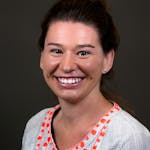
The world is facing grave problems that need attention and action. At the same time, there are stories of progress around the globe that remind us that change is possible when we work together with determination. Alongside the United Nations, each of us can help build on these gains to create a world where no one is left out.
Here are five good news stories from September.
The Americas are declared free of measles
On September 27, the region of the Americas was the first in the world to be declared free of measles. According to the Pan American Health Organization/World Health Organization, this was the result of more than two decades of work to mass vaccinate children against measles, mumps, and rubella. PAHO/WHO Director Carissa F. Etienne said, “It is proof of the remarkable success that can be achieved when countries work together in solidarity towards a common goal.” The Measles & Rubella Initiative, of which the UN Foundation is a founding partner, helps support the work that led to this achievement.
After more than 50 years of conflict, on September 26, the Government of Colombia and the Revolutionary Armed Forces of Colombia – People’s Army signed a peace agreement.
According to the UN, “the UN Mission in Colombia, tasked with the verification of the ceasefire and the laying down of arms, is already deployed throughout the country.” At the signing ceremony, Secretary-General Ban Ki-moon said, “Today, Colombians are bidding farewell to decades of flames, and sending up a bright flare of hope that illuminates the entire world.”
Editor’s Note: On Sunday, October 2, voters in Colombia rejected the peace deal, with 50.2% voting against it.
Paris Climate Agreement moves closer to entry into force
On September 21, at an event at the UN hosted by Secretary-General Ban Ki-moon, 31 additional countries formally joined the Paris Agreement on climate change, which brought the total number of countries that have joined the agreement to 60, clearing the first requirement for the agreement to enter into force. These countries represent about 48 percent of global emissions. For the agreement to enter into force, at least 55 countries representing at least 55% of global emissions are needed to join. More countries are expected to join this year.
The World Health Organization declares Sri Lanka malaria-free
On September 5, the World Health Organization certified Sri Lanka as free of malaria with no locally-transmitted cases reported in the past 3.5 years. According to WHO, to maintain elimination, the anti-malaria campaign is working with local and international partners to maintain surveillance and screening.
Gender data rises on the global agenda
Gender data was on the UN General Assembly agenda on September 21 when UN Women, the Bill & Melinda Gates Foundation, Data2X, and the Government of Australia organized an event to mark the launch of a public-private partnership to support UN Women’s “Making Every Woman and Girl Count” initiative. UN Women notes, “Currently, there is a huge data gap—from the complete lack of statistics on how many women and girls live in poverty, to inaccurate measures of women’s engagement in economic activities, based on sexist assumptions.” The partnership seeks to help select countries improve the collection and use of gender data.
[Photo: Anton Demerjian for UN Foundation]



 View All Blog Posts
View All Blog Posts